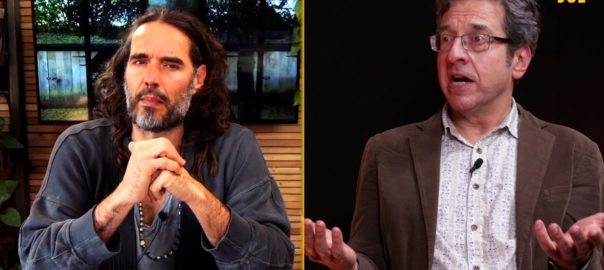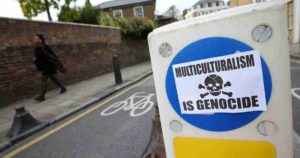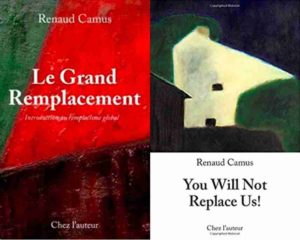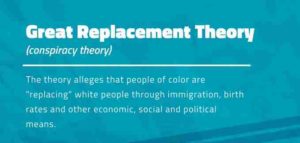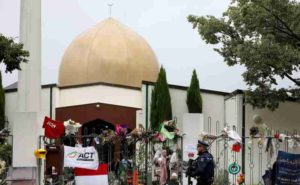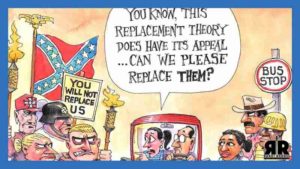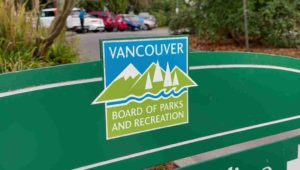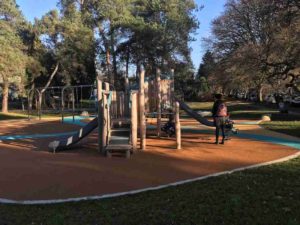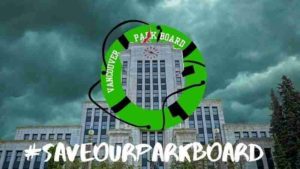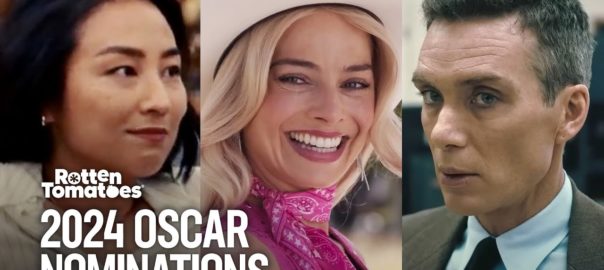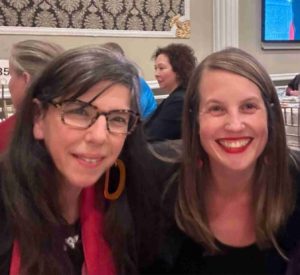
Andrea Reimer and Christine Boyle. Candidates for the Vancouver-Little Mountain NDP nomination.
Three weeks from today, the remaining 300 members of the Vancouver-Little Mountain NDP riding association will cast their ballots to choose who they wish to represent them in the upcoming October 19th provincial election.
Background as to membership numbers: when, in late 2022, Anjali Appadurai announced her intention to run for the leadership of the provincial NDP, 200 citizens who lived in the Vancouver-Fairview (now called Vancouver-Little Mountain) NDP riding signed up to support her candidacy — but did not renew their membership this past, or this, year, leaving 300 remaining voting members in the riding to cast a ballot in the current race to determine the provincial Vancouver-Little Mountain NDP candidate. In 2021, Ms. Appadurai had run as the federal NDP candidate in the riding of Vancouver-Granville, which shares borders with Vancouver-Fairview, thus was well-positioned to re-sign members during her provincial leadership bid.
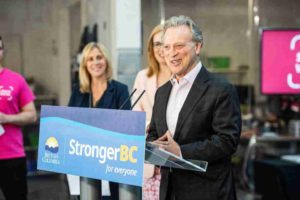
Vancouver-Fairview MLA George Heyman will not seek re-election in the October provincial election.
In the lead-up to former three-term Vancouver City Councillor Andrea Reimer announcing her Vancouver-Little Mountain New Democratic Party nomination bid, Ms. Reimer and her team were able to sign up a handful of NDP members in the riding to support her candidacy for the nomination, following George Heyman’s March 4th announcement that he would not seek a further term in the Legislature.
George Heyman endorsed Andrea Reimer at his retirement announcement.
Much to the surprise of political observers, current two-term OneCity Vancouver Councillor Christine Boyle announced her candidacy for the Vancouver-Little Mountain NDP nomination, within an hour of Ms. Reimer’s announcement.
Vancouver-Little Mountain membership was locked in early March, just prior to Andrea Reimer and Christine Boyle announcing their respective nomination bids.
After which, the NDP nomination race in Vancouver-Little Mountain was engaged.
Some big news! I am stepping up for my community and asking for your support to become Vancouver-Little Mountain’s next MLA.
Together, we can build a strong future for everyone in Vancouver-Little Mountain, and throughout our province. https://t.co/iuywHsYRPq pic.twitter.com/ewxMNHkcEc
— Andrea Reimer (she/her) (@andreareimer) March 4, 2024
Ms. Reimer’s Twitter announcement was followed by Ms. Boyle’s …
The @bcndp, led by my friend @Dave_Eby, has been taking big swings to solve BC’s intractable problems.
Housing, transit, affordability, they've been leading on important issues Vancouverites care about.
That’s why I’m seeking the NDP nomination in Vancouver-Little Mountain. 1/ pic.twitter.com/6Xt35gxo8B
— Christine Boyle (@christineeboyle) March 4, 2024
In the 10 days since their respective announcements, both Andrea Reimer and Christine Boyle have been active on the campaign trail …
? Thank you to the passionate volunteers out door knocking with me day after day. Your commitment to our community always inspires me — and kept me smiling all week. Let’s keep working together to build a strong future for everyone in Vancouver-Little Mountain! #BCNDPFamily pic.twitter.com/lGFgHAxZOo
— Andrea Reimer (she/her) (@andreareimer) March 10, 2024
Christine Boyle also tweeted out her work with volunteers on the campaign trail.
Great to be out knocking doors and talking to @bcndp members in #VancouverLittleMountain! So many good conversations about housing, healthcare, affordability and climate action.
Thanks to these volunteers & more for joining us to talk to voters on a cold and windy day! #BCPoli pic.twitter.com/N2uqovgkRq
— Christine Boyle (@christineeboyle) March 9, 2024
Both Vancouver-Little Mountain NDP candidates for nomination have active websites.
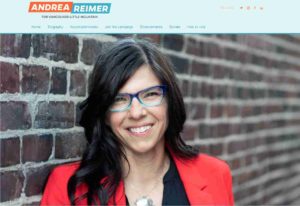
Each day on her website & on social media, Andrea Reimer has announced one or more endorsements.
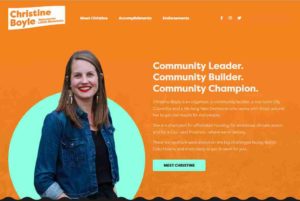
When it comes to endorsements, nomination candidate Christine Boyle’s website hasn’t been as active.
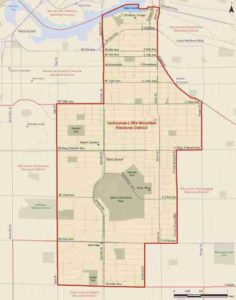 Click on the Vancouver-Little Mountain Electoral Map [PDF] for finer detail.
Click on the Vancouver-Little Mountain Electoral Map [PDF] for finer detail.
So, where are we three weeks out from April 4th’s NDP nomination meeting?
Andrea Reimer has run a 24-hour-a-day, high energy, community-oriented and tightly focused campaign to gain the Vancouver-Little Mountain NDP nomination.
Christine Boyle has also been out on the campaign trail, but her commitment to gaining the Vancouver-Little Mountain NDP nomination has been hamstrung by her full-time job as OneCity Vancouver’s only member on Vancouver City Council.
Should Andrea Reimer secure the Vancouver-Little Mountain nomination, she is a lock to be appointed as British Columbia’s next Environment Minister this upcoming November, when a newly-elected Premier David Eby announces his new Cabinet. Both are can-do, no nonsense politicos, both are team players, and neither politician suffers fools gladly. David Eby prefers to appoint Cabinet Ministers in whom he sees a bit of himself — and that is certainly the case with Ms. Reimer.
Christine Boyle, should she secure the Vancouver-Little Mountain nomination will not be destined for Cabinet, but will most certainly secure a position as a Parliamentary Secretary. To some extent, Ms. Boyle — an Anjali Appadurai acolyte — while friendly with the Premier must be seen as something of a Trojan horse, who will in all likelihood emerge as a thorn in the side of the Premier, as she speaks out against fracking and the lack of progress on the development of the Little Mountain site between 33rd and 37th avenues along Main Street.
Note. There is much NDP support for the policy positions enunciated by Ms. Boyle.
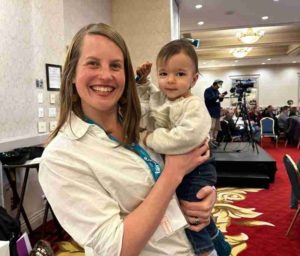
Christine Boyle holding Vancouver School Board trustee Jennifer Reddy’s child in her arms
Of all the politicians across British Columbia, Christine Boyle has the most winning smile, and for many she is the most authentic political figure in Metro Vancouver.
While we support Andrea Reimer’s candidacy, we believe the Vancouver-Little Mountain NDP nomination is Christine Boyle’s to lose.
Not a day goes by when we don’t run across someone, or receive a call from an associate who sets about to extol Ms. Boyle’s many virtues — this recognition coming from persons from across the political spectrum. If you’re an old fogey like many of VanRamblings’ associates, you can’t help but look at Ms. Boyle and think, “If she were my daughter, I would be so proud of her.”
[A photo of Christine Boyle accompanies the word charming in the dictionary]
Clearly, Ms. Boyle has much support among younger, more activist NDP members.
Christine Boyle’s campaign for the Vancouver-Little Mountain NDP nomination has been less high profile than that of Andrea Reimer. But does it really matter?
All Christine Boyle needs to do is secure the support of one hundred and fifty-five Vancouver-Little Mountain NDP members to win the nomination.
We imagine that Ms. Boyle has found herself on the doorstep of each riding association member, and been invited inside for a cup of tea, and a warm chat, whereupon Christine Boyle without any effort on her part at all, has charmed the socks off the riding members in whose homes she finds herself, who will invariably be impressed at her deep knowledge of the issues, her presentation of self as an advocate for the change we all want to see, and perhaps the most authentic political figure Vancouver-Little Mountain riding members will have ever encountered.
A winning combination that.

The 2017 by-election expense document published by Vancouver’s City Clerk’s office.
The only potential fly in the ointment of Christine Boyle securing the Vancouver-Little Mountain NDP nomination arises as a consequence of the near million dollar expense to the citizens of Vancouver should she secure the nomination, and go on to attempt to win a seat in the government of Premier David Eby.
Vancouver City Councillor Christine Boyle upon securing a second term of office on Saturday, October 15, 2022 to City Hall, committed to representing those who elected her to office for the full four years of the mandate she had been given.
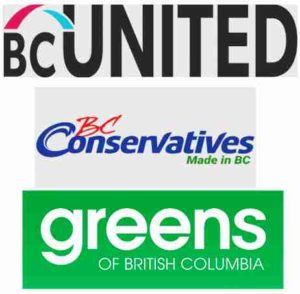
Given the cut and thrust of politics, one is left to wonder — should Christine Boyle secure the Vancouver-Little Mountain NDP nomination — how she would fare in the upcoming provincial general election, when confronted by her B.C. United, B.C. Conservative and Green party opponents, who would surely call her out on her failure to complete her elected term of office, and the consequent million dollar by-election expense that would ensue, in service of her ambition they might well say.

Andrea Reimer. Vancouver-Little Mountain NDP candidate? B.C.’s next Environment Minister?
Perhaps Andrea Reimer’s high profile campaign to secure the Vancouver-Little Mountain NDP nomination, her many, many endorsements and her active participation in the community — and, let’s face it, her overall competence — will carry the day, and come the evening of Thursday, April 4th, Andrea Reimer will emerge as the chosen candidate, the Vancouver-Little Mountain NDP candidate who will go on to victory on E-Day, Saturday, October 19th — where soon after, Andrea Reimer will become British Columbia’s next, much admired Environment Minister.
